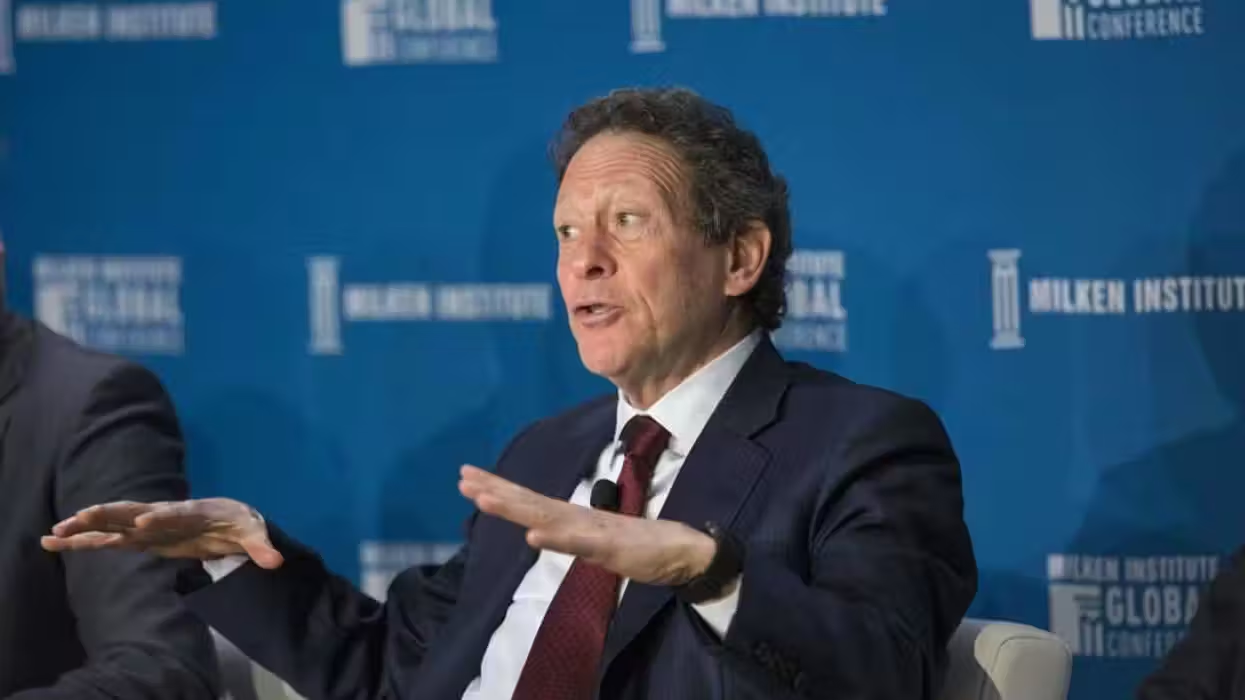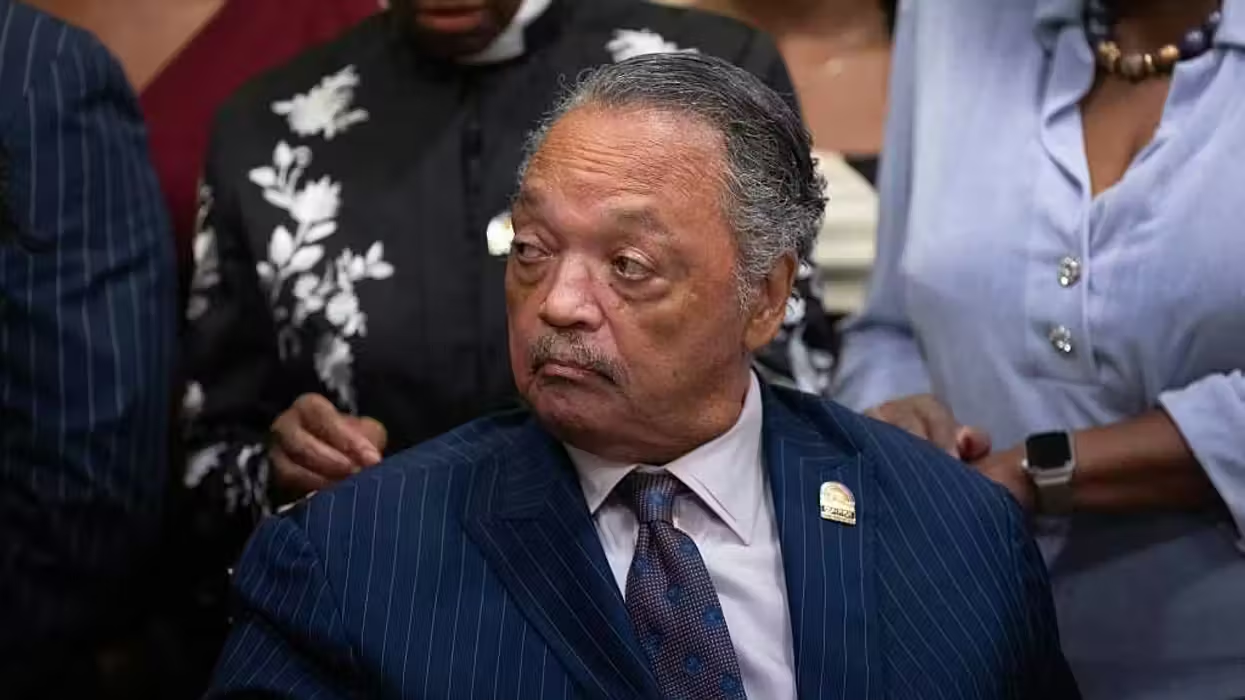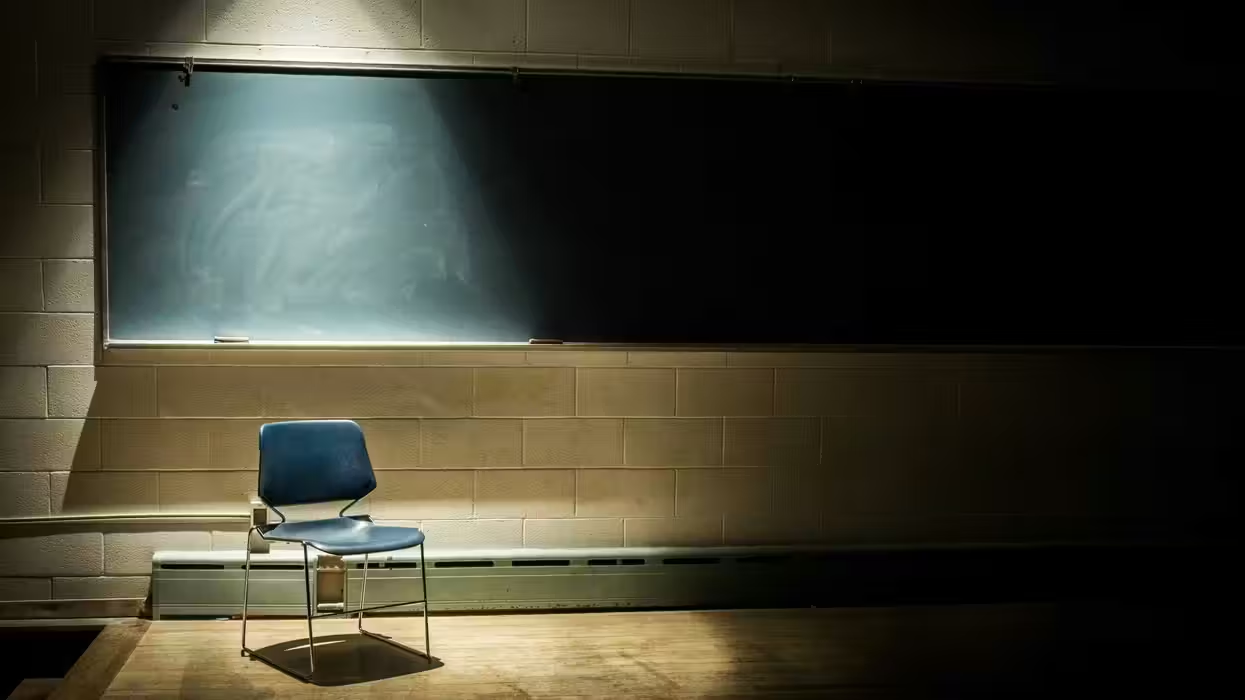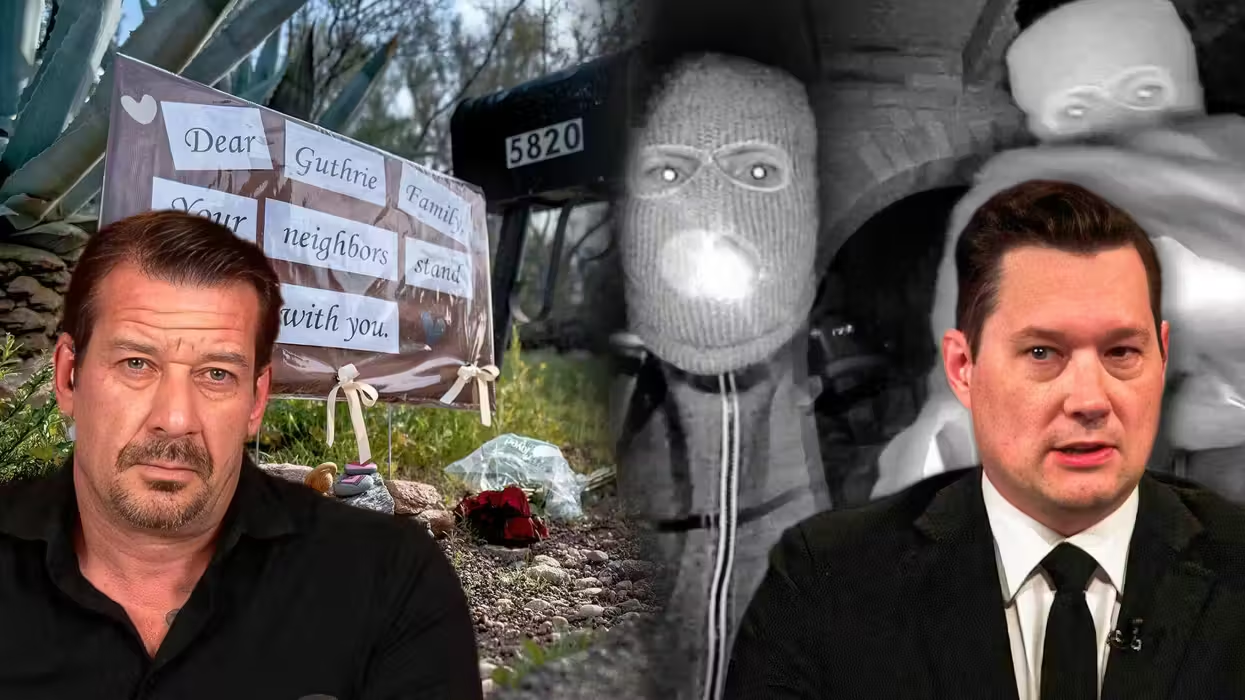
© 2026 Blaze Media LLC. All rights reserved.
David Barton Part 2: Historian Responds to Critics' Claims, Academics' 'Extreme Hostility Toward Faith' & Obama's Alleged King George III-Like Behavior
July 26, 2012
"I have spent more time in history documents than any [person] they want to name who has a history PhD" -- This Week: Barton to appear at Restoring Love in Dallas --
Editor's Note: This is the second segment of TheBlaze's series on conservative historian David Barton. He will also be appearing at some of the events surrounding Glenn Beck’s “Restoring Love” event in Dallas, Texas, this week.
 Earlier this week, we brought you the first part of our series on conservative historian David Barton. You learned some of the major criticisms that have been waged against him, while also gaining perspective into his worldview on America's founding. TheBlaze spoke exclusively with Barton to get his response and to better understand how he views the nation's founding.
Earlier this week, we brought you the first part of our series on conservative historian David Barton. You learned some of the major criticisms that have been waged against him, while also gaining perspective into his worldview on America's founding. TheBlaze spoke exclusively with Barton to get his response and to better understand how he views the nation's founding.
(Related: David Barton Part I: An In-Depth Look at the Harsh Criticisms of the Conservative Historian)
"I am a threat to their paradigm"
When asked to share why he believes some see him through such a negative lens, he said that critics view him as a threat to their worldview and ideological confines.
"I am a threat to their paradigm," Barton said. "They have a particular paradigm built on a set of beliefs. I challenge those beliefs based on historical evidence that weakens their perspective."
The academic world, he explains, embraces a far more secular worldview than mainstream society. He also said that numerous studies corroborate the notion that college and university campuses are among the most hostile place in America for faith and religion (and those who embrace a belief in a higher power).
This dynamic essentially leads to "extreme hostility toward faith," Barton believes. In a grander sense, he adds that it leads college academics and historians to gloss over the role of faith in the nation's founding.
"What they teach is a reflection of who they are and what they personally believe and that's the way it is with every teacher," he said. "Professors are so much more liberal than students are."

Barton said that when he attends campuses, this disconnect between students and liberals is evident. From secular to religious colleges, he said that "kids love" him and "professors hate" him. Regardless of the ideological dynamic that exists between these two sides, Barton worries that the students are being impacted by their leftist professors. He also believes that many of the professors, too, have been impacted by their own more-secular education.
"There's no way that you can go through intensive training and not have that run off on you to some degree," he said of the students who are trained by allegedly religiously-hostile professors.
Church and state
When it comes to the separation of church and state, Barton claims that the Founders simply wanted what the First Amendment says -- for Congress to make no laws that would limit people's ability to worship freely (it reads, in part, "Congress shall make no law respecting an establishment of religion, or prohibiting the free exercise thereof").
"[The First Amendment] always dealt with the church being the victim, the state taking over and trying to do the Obama thing -- 'Here's what you will do or the government will punish you,'" Barton explained.
To get the nation back on track, he says the Constitution is the best document to consult, considering that it is the "original design" for how the nation should be operated. Additionally, populism plays a role in getting America back on the proper course. Barton noted that the majority of the nation supports keeping God's name in the Pledge, among other faith-based stances. Allowing the people's voice -- the majority -- to be heard is the solution.
"If you let the people be in charge you'll get the same results that the constituion will give you...go back to founding principles," he added.

When atheists and secularists co-opt the discussion, the minority gains power over the majority, Barton explained, calling such a result "unconstitutional."
"That's exactly why the Founding Fathers did not allow filibusters in their day," he added. "It allowed 40 senators to have more power than 60 senators. The Founders got it right."
A "self-made historian"?
Barton also tackled the consistent framework through which he is represented, as most outlets call him a "self-made historian." When asked how he reacts to what seems like it could be an attempt to depict him as uneducated or not properly prepared to take on historical constructs, he had plenty to say.
"They don't attack the facts -- they attack the education -- and that's a way to change the topic," Barton said. "If education really matters, there's a lot I can point out. Ben Franklin didn't have an education at all. George Washington didn't have a military education."
The historian explained that Americans have traditionally prided themselves "not on the labors you wear, but the fruit you produce." He took specific aim at Warren Throckmorton, an associate professor of psychology at Grove City College (we mentioned Throckmorton in our original piece).
"The case of Throckmorton is a great example. He's a psychology guy. Tell me what history experience he has -- he has no training in that area at all," he said, going on to wonder why Throckmorton is permitted to critique him with little scrutiny when he, too, purportedly has little formal history education.

"I have spent more time in history documents than any [person] they want to name who has a history PhD. There might be half a dozen people in america that have read as many history documents as I have," he continued. "If that translated into actual degrees I would have four or five PhDs."
We told Barton that writer Stephen Prothero also challenged the historian's claims about President Thomas Jefferson. As we previously noted, Prothero wrote that Jefferson dubbed the Biblical book of Revelation as the "ravings of a maniac" and that he never accepted the divinity of Jesus. The professor also claims that the virgin birth was rejected by the Founding Father and that the Trinity was "hocus-pocus phantasm."
Barton said that this is absolutely explainable, as he provided a more divided view of Jefferson than many historians have.
"The easiest way to explain this -- what if I only chose quotes from Ronald Reagan from the time he was a Democrat? Woud that be an accurate depiction or not?," Barton asked. "Jefferson had several religious phases. During the last 15 years of his life he started to critique his former beliefs."
He went on to say that it's unfair to examine the last 15 years of Jefferson's life and to frame him based upon his behavior during that time, when he lived the first 70 years as a more traditionally-religious man. Ignoring the bulk of Jefferson's life, Barton says, isn't an appropriate way to tackle the history.
Jefferson lived his life as a Christian, Barton said. As far as whether the former president and Founding Father died with the faith he purportedly espoused, Barton is divided. He called such a discussion "a complicated situation."
"If you believe as many denominations do, 'once saved always saved,' you would believe he stayed saved. If you believe that you can lose salvation, you can argue that he could lose it," he said. "If I could use an Obama phrase, 'that's above my pay grade.' "He didn't renounce the faith -- he still was a great lover of Jesus. He just wasn't sure Jesus was the divine son of God."
The state of religious freedom in America
Aside from addressing critics, Barton went on to discuss the state of affairs in America when it comes to religious freedom, dubbing them "the worst we've had since King George III." While it's been the worst in terms of government abuses and suppression, Barton believes that populism has been excellent, specifically in the faith arena, where believers have been standing against the contraceptive mandate, among other freedom-related issues.
As for his involvement in Glenn Beck's "Restoring Love," Barton is helping citizens in the Dallas, Texas, area and empowering them as they volunteer to assist the poor and those in need this week. He's managing about 25 projects related to the "Restoring Love" initiative. During our discussion, he touted the importance of helping one's fellow man.
"I'm a firm believer in limited government and if I'm an advocate for that I need to do more myself," he proclaimed. "If individuals would pick up the social needs, the government wouldn't need to."
Stay tuned for part three of the series, which will consist of a live Spreecast discussion with Barton next week.
Want to leave a tip?
We answer to you. Help keep our content free of advertisers and big tech censorship by leaving a tip today.
Want to join the conversation?
Already a subscriber?
Billy Hallowell is a digital TV host and interviewer for Faithwire and CBN News and the co-host of CBN’s "Quick Start Podcast."
Billy Hallowell
Billy Hallowell is a digital TV host and interviewer for Faithwire and CBN News and the co-host of CBN’s "Quick Start Podcast."
more stories
Sign up for the Blaze newsletter
By signing up, you agree to our Privacy Policy and Terms of Use, and agree to receive content that may sometimes include advertisements. You may opt out at any time.
Related Content
© 2026 Blaze Media LLC. All rights reserved.
Get the stories that matter most delivered directly to your inbox.
By signing up, you agree to our Privacy Policy and Terms of Use, and agree to receive content that may sometimes include advertisements. You may opt out at any time.






